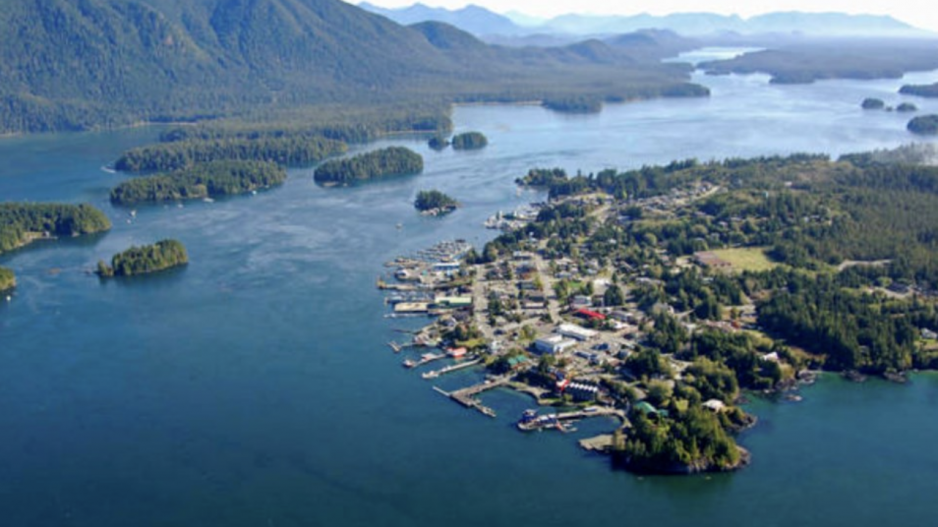This year’s historic drought has created tinder-dry conditions across much of B.C.‘s Interior, with wildfires threatening several recreational areas in the province.
Panorama Mountain Resort near Invermere, the Southern Okanagan community of Osoyoos and other recreational enclaves across the southern Interior have all received evacuation alerts and, in some cases, orders.
But wildfire is just one manifestation of a deeper issue: Persistent drought.
All but two of the province’s 34 water basins experienced low levels at the beginning of August. A record number, 11, were at a severe Level 5 on the province’s six-level drought scale.
Unauthorized water users on Vancouver Island and elsewhere were being shut down in accordance with the province’s seven-year-old Water Sustainability Act, an unprecedented crackdown on Canada’s so-called Wet Coast.
Popular recreational getaways such as Tofino and the Sunshine Coast were bracing to be next due to fast-falling reservoir levels.
Tofino Mayor Dan Law noted that four creeks on Meares Island fill reservoirs and feed a sea-floor pipeline that supplies the town with water.
“We are subsisting on fog and dew and every night it’s feeding the creeks and our reservoirs,” Law said. “It’s a mature forest over there. Forty years ago, they refused to log that watershed, and thank God they did.”
Tofino is experiencing the driest months in recorded history. To put that in perspective, since May 1 to mid-July, Tofino received 19 millimetres of rain in total. On average, cumulative rainfall for the period is 249 mm.
Tofino imposed Stage 3 restrictions on July 10, noting that rainfall since May 1 was less than 8 per cent of normal.
“Stage 3 water restrictions in Tofino are the last stage before Tofino shuts its doors to tourism,” Jennifer Heckert of Re/Max Mid-Island Realty in Tofino said in early August. “We’re just really teetering on the edge of that. There’re rumours that Tofino is going to go Stage 4 and the district is going to force Tofino’s businesses to close to tourism.”
Tourism accounts for more than 40 per cent of water demand, and Heckert says the community doesn’t want a repeat of 2006, when the town shut its doors in the run-up to Labour Day.
But storage capacity is an issue. A new, $5 million reservoir expansion completed a month after the 2006 shutdown, but commercial development didn’t stop nor did population growth. Tofino reported 2,516 residents in the 2021, a 52 per cent increase from 2006.
“[Capacity] wasn’t sufficiently upgraded,” Heckert said. “We’re still working with a pretty old system that is in dire need of being upgraded.”
While interest rates are often greater concern than water restrictions for the buyers Heckert works with, access to water is something recreational property buyers need to keep in mind.
Older properties may have aging infrastructure that are not as efficient as they could be, while the province’s shift to groundwater licensing in 2016 means landowners who buy a property may face challenges securing water rights for non-domestic use, especially in the Kettle and other basins.
Landowners should address the challenges posed by aging infrastructure and water licensing, according to Freddy Marks, managing broker of the Re/Max Nyda 3A Group in Chilliwack. “Regularly maintaining and upgrading wells and pumps can help prevent potential issues. Moreover, staying compliant with water licensing regulations and obtaining necessary permits for irrigation and livestock use are vital steps to avoid regulatory troubles.”
Marks, a specialist in rural and recreation property, also recommends water quality testing being a condition of any offer to purchase.
“When viewing properties, stop in and talk to adjacent neighbours, who can tell you how deep their well is, how many times they had to drill and inquire about smell, taste and quality,” he advised.
B.C.’s approval process for mountain resorts requires that developers detail plans meet anticipated water demand.
Whistler, perhaps the best known of B.C.’s resort municipalities, has adequate infrastructure that’s meant few water restrictions to date.
“We’re fortunate in Whistler because we have lots of lake water,” said Stefanie Hostetter, CEO of Re/Max Sea to Sky Real Estate in Whistler. “We haven’t had any huge water restrictions other than lawn watering.”
Whistler also has an active program to ensure a low volume of wildfire fuels in local forests, reducing the risk and giving insurers and others the confidence need to back local property purchases.
Hostetter says the province also recognizes the importance of tourism, giving resorts a privileged position.
“We are an economic engine for the province, so we’re in a unique position,” she said. “We’re very well taken care of, spoiled even. I think that’s why people feel comfortable with their purchases.”
With a file from the Times Colonist.




